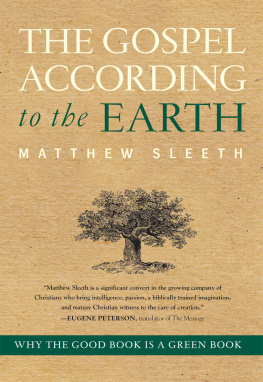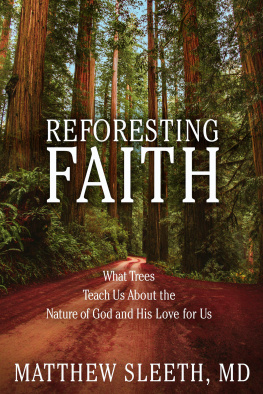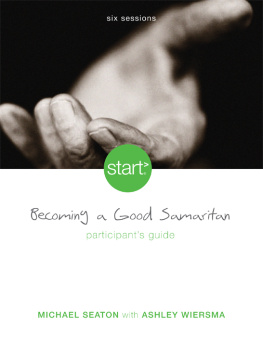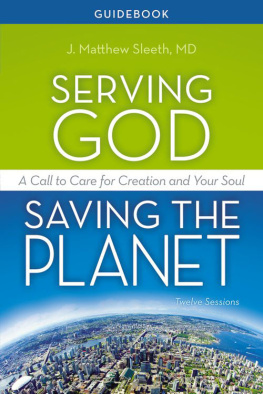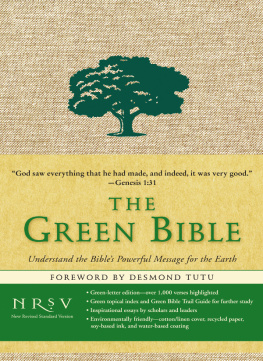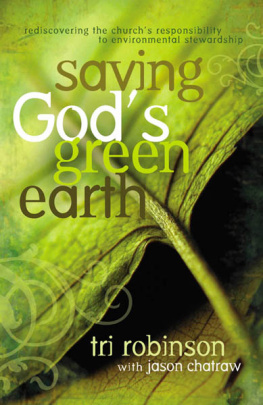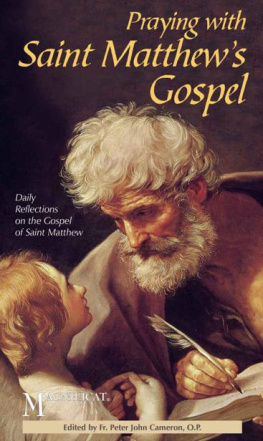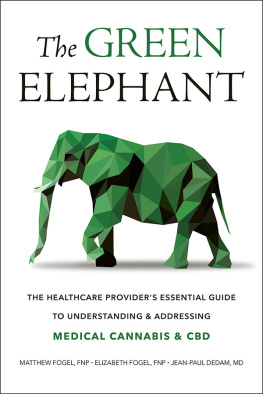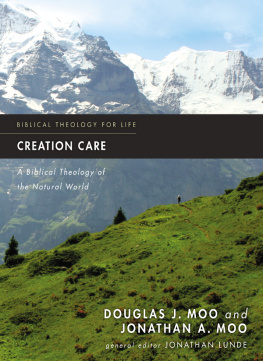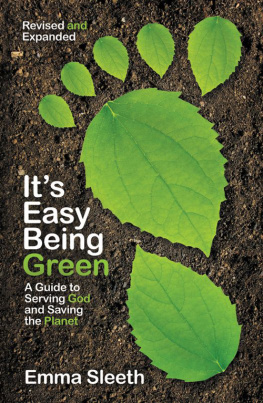This book is dedicated to my children. Clark, if I were a parent in some part of this world where children have no access to medical care, I would lift my eyes to God and pray for him to send a physician like you. Emma, you are brave, brilliant, pure, and true. There is no one on earth with whom I would rather listen to The Hills of Home.
The Log in My Eye
A Journey Begins
Do not judge, so that you may not be judged. For with the judgment you make you will be judged, and the measure you give will be the measure you get. Why do you see the speck in your neighbors eye, but do not notice the log in your own eye? Or how can you say to your neighbor, Let me take the speck out of your eye, while the log is in your own eye? You hypocrite, first take the log out of your own eye, and then you will see clearly to take the speck out of your neighbors eye.
(Matt. 7:15)
One Sunday, shortly after I became a Christian, a pastor and I started talking about environmental stewardship. At the end of the conversation, the pastor told me I had a tree-hugger theology. Now, I dont know about you, but I have rarely heard the terms tree-hugger and theology used in the same sentence kindly.
His comment made me wonder: was I on sound theological ground? Becoming a Christian had led me to rethink many areas of my life; the books I read, the movies I watched, and the friends I spent time with had all changed. Should I also reconsider my views on the environment?
Fortunately, Christianity is based on a book, the living Scriptures. Unlike politics and culture, this book never changes. It is the rock on which I base my life. When I have questions, the first place I look for answers is the Bible.
So I asked myself, What, if anything, does the Bible have to say about caring for the earth? Using an orange pencil (I wish it had been green), I read the Bible from cover to cover, underlining everything that had to do with nature, Gods revealing himself through creation, and stewardship of the earth. What I ended up with was an underlined Bible.
It turns out the Bible has a lot to say about what I think is the most important moral and spiritual crisis facing us today. From Genesis to Revelation, the Bible is filled with instructions on how we can demonstrate our love for the Creator by caring for his creation. He wants us to love every sparrow and every treejust as he does. And he wants us to demonstrate love for our neighbors by sharing his sustaining blessings.
Reading the Bible through a green lens radically changed my life. Eventually, I left a successful career in emergency medicine to work on the greatest global health crisis humanity has ever faced: the health of our planet. My family and I reoriented our life away from material things and toward God.
In this book, I invite you to walk through the Bible alongside me and share my familys spiritual and environmental journey. Although I was an environmentalist before I was a Christian, I did not act like one until faith inspired me to significantly scale back my lifestyle. The purpose of this book is to share with you what I learned and, I hope, encourage you to become a better steward of the sustaining gifts that are on loan to all of us. We will not be merely prooftexting specific passages, but rather exploring some of the deepest themes of Scripturerepeating patterns in the Bible that counsel us to lead lives closer to the example set by Jesus. Further, we will be expanding the popularly held notion of green. Instead of narrowly focusing on how much electricity we use and what cars we drive, we also will unpack how electronic entertainment interferes with our relationship with the Creator, and how living a biblical 24/6 life instead of a worldly 24/7 life can bring us closer to God. Throughout this scriptural odyssey you will discover, as I did, that the less we fill our homes with material things, the more contented and spirit-filled our lives will become.
How did this scriptural journey begin? For much of my adult life I did not believe in God. I thought that science and rationality were the keys to unlocking the way to happiness. I didnt go to church, own a Bible, or hang out with people of faith. I had been brought up in a Protestant householdbut it hadnt taken. Nancy, my wife, was raised in a conservative Jewish home. We met when she was eighteen, and married when she was twenty. Reactions from family and friends convinced us that religion was simply a means for people to justify their own prejudices.
For the next two decades, we pursued the American dream. I had grown up in dairy-farming country and was working as a carpenter when we married. Nancy convinced me to enroll in college, and a few years later I was accepted to medical school. After residency, we moved to a postcard-perfect neighborhood on the New England coast. I was doing something I loved, and I relished the prestige, paycheck, and respect attached to being director of an emergency room and chief of staff of the hospital. I drove a fast car with a teak dashboard, and when I arrived home at the end of a shift, I entered my three-story Greek Revival house with four bathrooms, custom cherry cabinets, and a separate guest suite.
One February, my wife, Nancy, and I and our two children, Clark and Emma, went on vacation to an island off the coast of Florida. The island was warm, beautiful, and quiet. It had no cars and no streetlights. The narrow roads were paved with sand. The children ran round and round during the day, and I made up games to tire them out.
Once the children were tucked into bed, Nancy and I sat out on a balcony facing the water. The stars shone brightly, and a lovely breeze washed in off the Gulf of Mexico. The palm trees rustled. The children slept. In that beguiling, tranquil setting, Nancy asked me a question that was to change my life forever.
What, she wanted to know, is the biggest problem facing the world today?
There is no shortage of problems in the world: hunger, war, poverty, prejudice, greed, and weapons of every sort. Yet, after thinking for a minute, I answered, The world is dying.
I gave this answer not because I was a biologist or ecologist, but simply based on my observations. There are no more elm trees on Elm Street, no more chestnuts on Chestnut Lane, no caribou in Caribou, Maine, and no more blue pike in the Great Lakes. This fish is not a rare or exotic species that has fallen prey to extinction. A few decades ago, the blue pike was the most numerous and commercially harvested freshwater fish in the worldthought to be inexhaustible. It was fished to extinction by 1983.
The fields and fence rows in which I came of age have been bulldozed, plowed, and planted with houses. Many people like me have returned to the places of our youth only to find that they have vanished. When Nancy and I tried to find the ford where I had proposed to her, we could not even find the stream. It had been buried under a subdivision.
Similar changes have occurred in humans. We get more cancers, more autoimmune diseases, and more asthma than ever. Our response has been to build bigger hospitals and develop more medicines and radiation treatments. Healthcare becomes more expensive every year, yet we do not ask the question, Is it because our environment is making us sick?
Despite these warning signs, our houses, roads, and cities continue to grow. Plans for the future are based upon infinite growth. Yet we live in a finite world. No one should suppose that these trends can continue unaltered for another hundred years and that everything will turn out all right.
We sat there in the tropical quiet for a while. And then Nancy asked a much more difficult question, What are you going to do about it?
I did not know, but I told Nancy I would get back to her. When we returned home, I resumed my life as a doctor. On the surface it appeared the sameyet I was disquieted. How does one grapple with a dying world? I had seen and dealt with death both personally and in my role as a physician. But how does one get ones mind around the death of an entire planet?

